The Indian woman who 'stood up' to Donald Trump
- Published
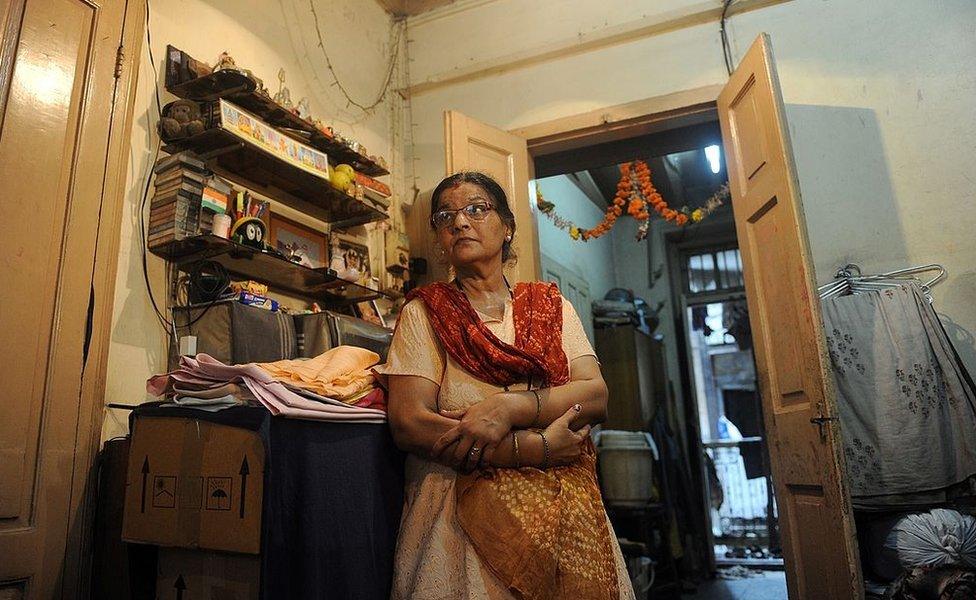
Smita Panvalkar passed away last November
Five years ago, a 50-something woman living in a tumbledown 87-year-old building in Mumbai became the talk of the town for "standing up" to Donald Trump.
Reports described Smita Panvalkar, a homemaker, who lived with her husband, son and brother in the first floor of the building as a "gritty woman who stands between Donald Trump, easily the world's most glamorous real estate developer, and his first project in India".
In 2011, the real estate tycoon had teamed up with a local developer to construct a 65-storey Trump Tower - India's first - containing some 50 ultra-luxury apartments in an upscale neighbourhood.
'Simple life'
In a land-starved island city with steeply priced real estate, most new construction is done after tearing down old buildings and compensating and re-housing the original tenants.

You might also like:

The fate of the four-storey Pathare Prabhu Building in which the Panvalkars lived since 1990, turned out to be no different. There were 25 other tenants who lived in poky fixed-rent apartments in the building in the posh south Mumbai neighbourhood of Chowpatty, not far away from one of the city's bustling beaches.
"We lived a simple life. Our life was fairly eventless until 2011," says Prasad Panvalkar. He paid a paltry rent of 185 rupees($2.7; £2.24) a month for his first floor, three-room, 560 sq ft apartment.
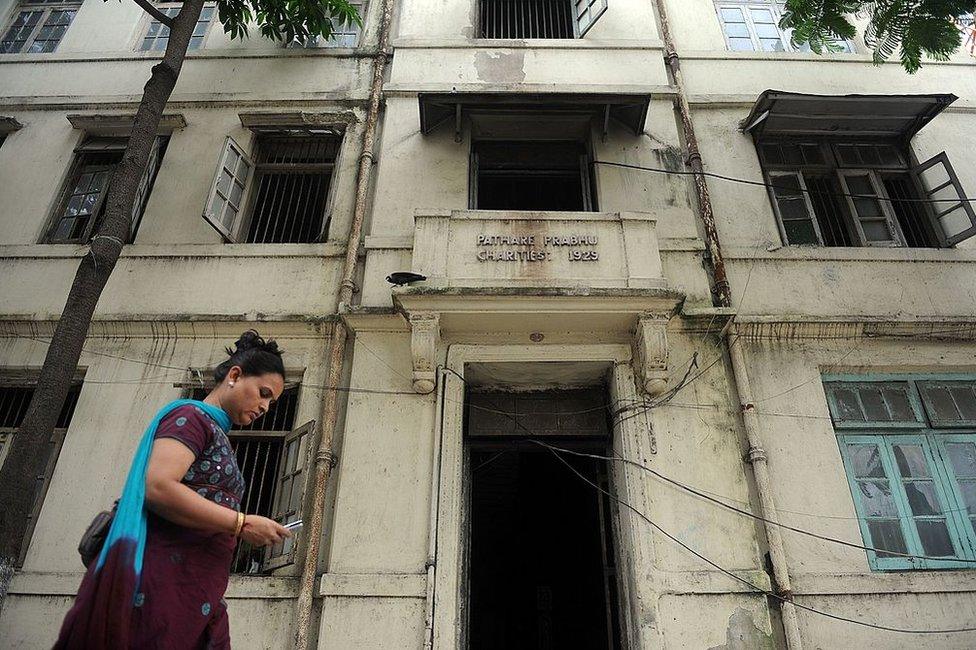
More than 20 families lived in the building which had to be torn down for the Trump Tower
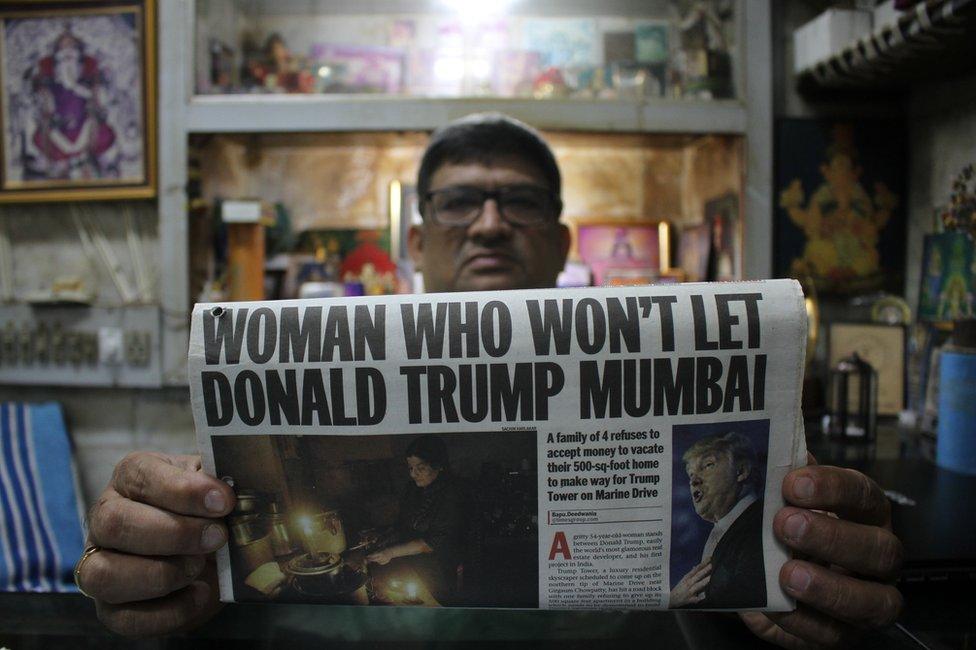
Prasad Panvalkar said his wife was a "fighter"
Sometime before this, news washed up in the city's real estate circles that Mr Trump was looking to launch a project in India. A well-known local developer, Rohan Lifescapes, swiftly moved in.
"We met him in New York and had four meetings. He showed interest in India and we briefed him on prospects in Mumbai. He even invited us to the shooting of [the reality show] The Apprentice at the Trump Tower," Harresh Mehta, chairman of Rohan Lifescapes, told me.
It didn't take much time for the tycoon and the developer to forge an agreement to build India's first Trump Tower in Mumbai: a gleaming, state-of-the-art 65-storey high-rise with about 50 apartments on a plot of more than 2,000 sq m. The local developer had acquired two neighbouring buildings in adjacent plots - including the one in which Mr Panvalkar lived - for building the tower. Launch prices were set between 40,000 and 50,000 rupees ($600-$750; £488-£610) per sq ft.
'Refused to move'
"It was a branding agreement. In exchange for royalties, we would use the Trump brand name. He wasn't investing any money. Trump is a famous name, and the branding would have helped in the appreciation of price," said Mr Mehta.
Back in the decaying building, the tenants had been informed in 2004 that the building would be "redeveloped". The majority of tenants had apparently consented to the move.
"But nothing happened until 2010. Then the developers came and informed us to vacate the building so that they could develop it."
Mr Panvalkar told me that his wife took the lead and flatly refused to move out.
"The developers offered compensation money and asked us to leave. Smita told them we won't leave the building unless they gave us an apartment in the new building. Much later we learnt that the building was named after Donald Trump, the famous American tycoon," he said.
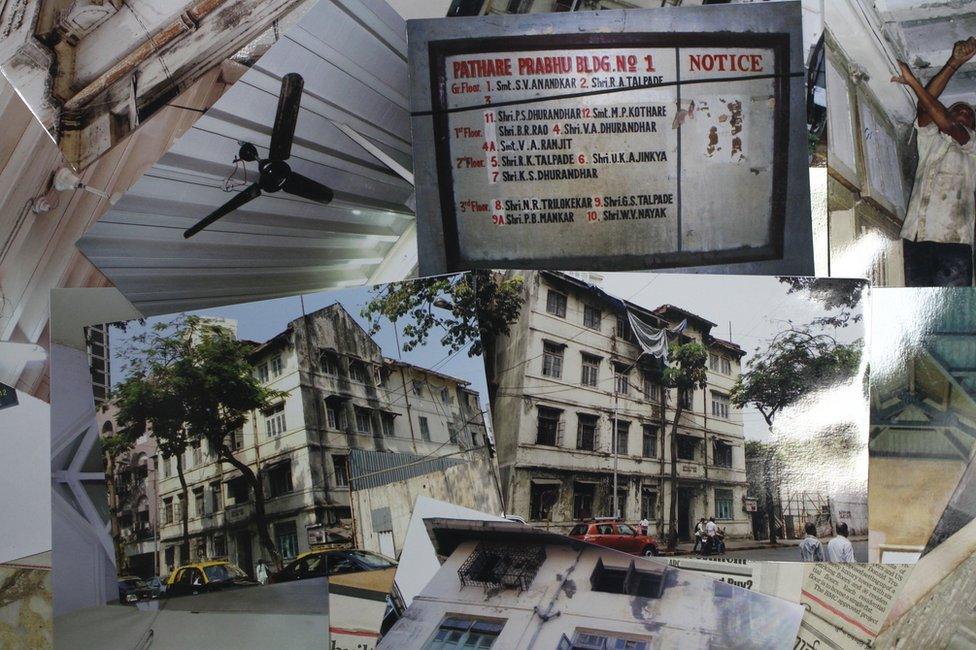
The Panvalkars lived in the building for 27 years
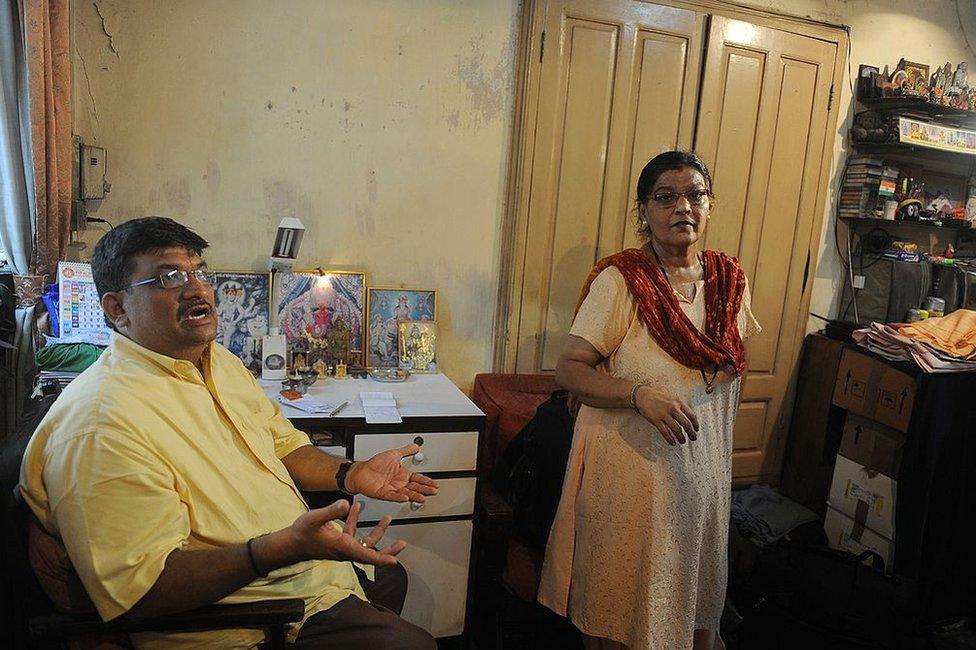
The family continued to live in the building during a 45-day power outage
The local press quickly found a heroine of resistance. "Woman who won't let Donald Trump Mumbai," headlined Mumbai Mirror, external. The newspaper described her as the "gritty 54-year-old woman who stands between Donald Trump and his first project in India".
"One lady stands in the way of Trump Tower Mumbai," another headline cheered. Ms Panvalkar is a "tough nut to crack", reported yet another newspaper.
By January 2011, the Panvalkars were the last people living in the decaying building. The 25 other tenants had left. The pipes leaked, and grime and dust covered the stairwells. In May, a small fire, blamed on a short circuit, shut down electricity for 45 days.
There was a time, Mr Panvalkar said, when he felt that they should leave the building. Again, his wife stood in the way and refused to budge.
'Overworked'
"We lived and slept in the flat in the sweltering humidity and heat. Smita was overworked, doing the chores," he said.
When darkness fell in their heaving city, she would make food in the candlelight, and the family would sleep early. Ms Panvalkar, who was a diabetic, told a reporter, external that she was going without her medicines because the refrigerator was not working.
Mr Mehta told me there was "no pressure to evict the Panvalkars". He said the majority of tenants of the building had already moved out. "They [Panvalkars] were difficult tenants, but they could not have stalled the project," he said.
For the next six years, up until this June, the Panvalkars refused to budge, thwarting the demolition of the building. The planned luxury tower, Mr Mehta told me, ran into further problems: approvals were delayed and there were "regulatory issues". The project also ran foul, external of some existing building laws.
In 2013, Mr Trump moved on. Mr Mehta said they terminated the licensing deal with the tycoon as the project was stalled. "We had lost time and we had an amicable parting."
Mr Trump went ahead and tied up with another leading builder, Lodha Group, to build his branded tower.
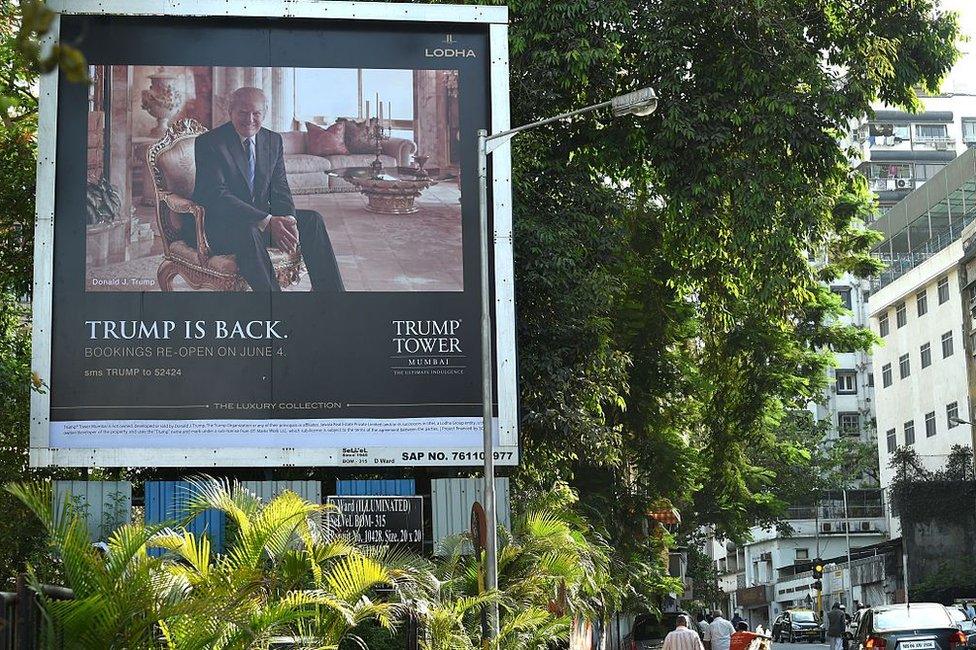
Mr Trump returned with a new project in Mumbai in 2013
Back at the building, life went on for its solitary occupants. Then tragedy struck. Last November, Ms Panvalkar died after suffering from a massive heart attack. "She had suffered from a lot of stress. She had diabetes and high blood pressure," Mr Panvalkar said.
"She was a quiet woman, but very determined. She was a fighter. I miss her a lot."
'Honour commitments'
Smita Panvalkar had also put family before career. A trained textile designer, she had done freelance work at Mumbai's dwindling textile mills. She had taught in a school. After marriage, she had stopped working to bring up a family, and fought fiercely to stay in her home.
Mr Panvalkar said he continued to stay in the building to "honour Smita's commitment". He had filed more than a dozen right to information applications, lived without electricity, resisted three eviction orders from civic authorities, and fought in the courts.
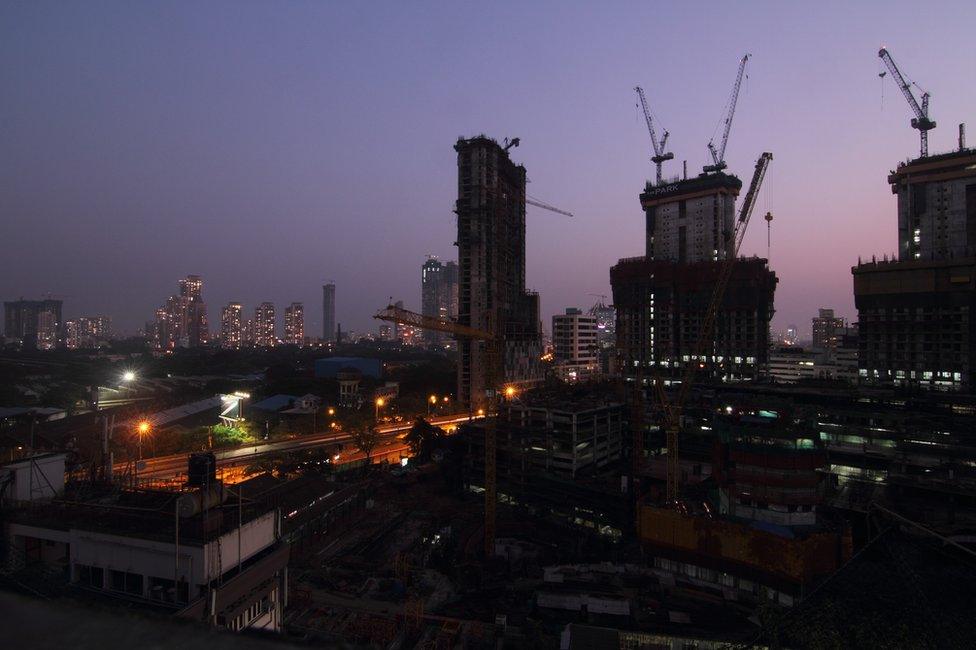
Mumbai has some of the world's costliest real estate
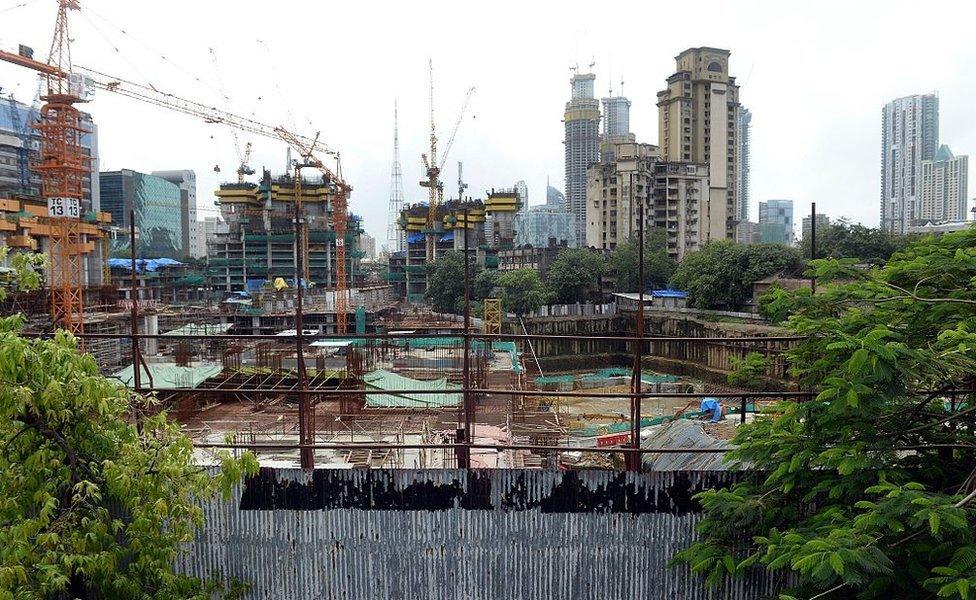
The new Trump Tower will have a private jet facility, according to the developers
In April last year, the Panvalkar finally moved out after reaching an agreement with Rohan Lifescapes who are now building a 22-storey apartment on the plot, a joint venture with another builder. The developers, he says, have agreed to provide him a 12th storey flat in the building when it's ready.
Finally, Mumbai will also have a 75-storey luxury Trump Tower in the Upper Worli neighbourhood. It will have more than 400 apartments and a private jet facility. Deliveries will begin in 2018. A spokesperson of the group told me that 57% of the apartments, costing between $1.35m and $3.75m (£1.09m and £3.04m) had been already sold in advance.
'Your real estate is unbelievably cheap," Mr Trump famously said, external, when he finally visited Mumbai, one of the world's most expensive property markets, in 2014. He had also probably never heard of Ms Panvalkar.